
Photos of December 2017 reception of former officials
Category : Archives
The photos of December 2017 reception of former officials are online! Thank you to the photograph, our colleague Jacques Rodriguez.

Category : Archives
The photos of December 2017 reception of former officials are online! Thank you to the photograph, our colleague Jacques Rodriguez.
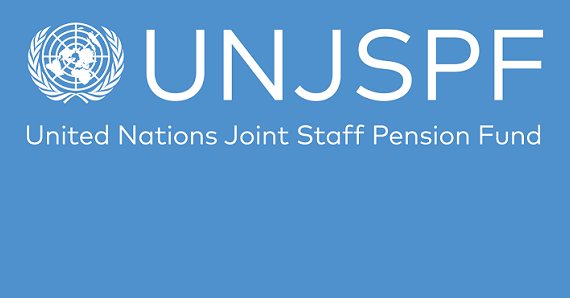
Category : Archives
The meeting of the Joint Committee of the Fund took place on 24-28 July 2017. This meeting was eagerly awaited given the turmoil experienced by the Pension Fund over the past two years. Some of the problems were related to the introduction of a new computer system that initially resulted in delays of up to 6 months in the calculation of pensions for new retirees. The delays have been reduced and it now takes between 4 and 6 weeks for the first payment to be made if all the required documents are received by the Fund. It should be noted that the payment of pensions for current beneficiaries never experienced any delays. One of the biggest problems, however, concerns the calculation of survivor pensions as the new computer system does not have the possibility to include the spouse’s name on the Certificate of Entitlement – an omission which certainly does not help survivors to be paid quickly. A task force has now been set up to ensure that survivors can be paid within 4 to 6 weeks, but delays can unfortunately often occur because documents, for example regarding traditional marriages, are missing. A innovation introduced in the computer system is “Member self-service”, which is now fully operational for retirees. If you have difficulty entering the website check that you have a recent version of Windows Explorer or use Google Chrome.
Other problems with the Fund have been related to investment management which, according to the rules in force, is expected to produce returns of 3.5% (see article by Cherry Thompson-Senior in Issue 59-60 of Message). The Investment Officer of the Fund is directly under the authority of the Secretary General of the United Nations. The incumbent’s contract ends at the end of 2017 and the process to recruit a replacement started in the summer. It is very important that the person recruited is of the highest calibre to manage the large sums involved and it is essential for the long-term sustainability of the Fund that the benchmark of 3.5% is achieved.
Lastly, criticisms have been expressed in recent years about the governance of the Pension Fund. The management of the Fund’s CEO was called into question by some staff associations creating a somewhat tense climate and causing many worries for pensioners and their associations. Thus the mandate of the current CEO has been renewed for only three years, instead of the usual five (see the Joint Committee Conclusions published in this issue).
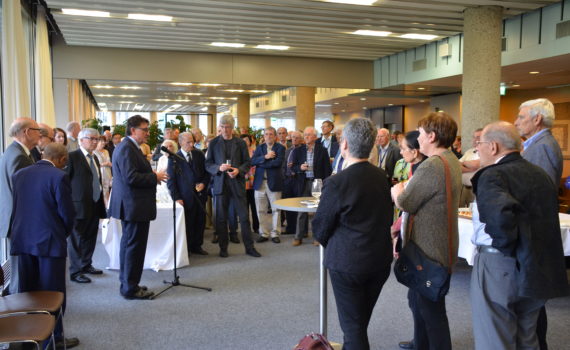
Category : Archives
The photos of the 20th of May 2017 reception of former officials are online! Thank you to the photograph, our colleague Jacques Rodriguez.
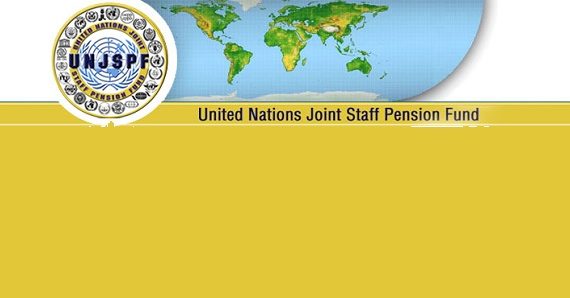
Category : Archives
Message of the UNJSPF
Certificate of Entitlement (CE) 2017
The Chief Executive Officer of the Pension Fund is required, under the Fund’s Regulations and Rules, to confirm each year that a beneficiary continues to be entitled to receive a pension benefit from the Fund. For this purpose, a Certificate of Entitlement (CE) is sent to all beneficiaries whose benefit has been in payment for at least 6 months at the time of the 1st yearly CE Mailing which takes place at the very end of the month of May.
The purpose of this communication is to advise you that the 2017 Certificates of Entitlement, dated 31 May 2017, were dispatched to the Fund’s beneficiaries worldwide during the very first days of June 2017. Approximately 58,697 CEs were sent out, either via the US Postal Service or the UN Diplomatic Pouch Service. The time it takes for the CE to reach its respective destination is largely dependent upon the postal services of the countries involved.
It is extremely important that beneficiaries sign and complete the bar-coded 2017 CE and return it to the UNJSPF no later than 15 September 2017. Otherwise, in a major effort to avoid suspending anyone’s benefit, a second bar-coded CE will be dispatched at the end of September 2017 to all those beneficiaries for whom the Fund’s CE tracker did not record a returned (bar-coded) 2017 CE. If no duly completed 2017 CE has reached the Fund by 31 December 2017, the subsequent benefit payment may be suspended.
Please note that in an effort to enhance services provided to the Fund’s clients, the 2017 CE forms can be downloaded and printed from the Fund’s Member Self Service (MSS) by those retirees who have registered for MSS and whose benefits are NOT paid on the two track. This new feature is currently available ONLY for former Fund participants who are now in receipt of a retirement or disability benefit.
CE forms for beneficiaries in receipt of a form of survivor’s benefit are NOT yet available on MSS; they will be able to download the CE from MSS starting with the next CE Exercise in 2018. CE forms for those retirees whose benefit is paid on the two track are NOT available on MSS and in line with audit requirements for two track benefits will not be made available in the future. These beneficiaries and retirees must await receipt of the original hard copy 2017 CE form through pouch or postal mail.
Each CE form, is individually overprinted with the case specific and relevant personal information (name, UID and retirement numbers, etc.) for each retiree and beneficiary as well as the case specific bar-code (which will allow tracking of each CE sent and returned to the Fund). Each beneficiary must return a duly dated and signed original bar-coded CE form to the Fund carrying his/her ORIGINAL signature in blue ink. The Fund cannot accept copies, faxes or PDF attachments to email in lieu of the hard copy form carrying the beneficiary’s ORIGINAL signature.
Please note, the Fund has posted an update on its website (www.unjspf.org), which provides a full summary of the status of the current CE mailing, as well as other useful information concerning the CE process, namely, the Fund’s online CE tracking feature as well as the steps retirees and beneficiaries should take in case the 2017 CE has not reached them by the end of September 2017.
Thank you for your kind attention and cooperation in this important exercise. It is greatly appreciated.
The UNJSPF Client Services Team
CONFIDENTIALITY NOTICE: The information contained in this e-mail and its attachments is for the use of the intended recipients only, and may be strictly confidential and/or legally privileged. If the reader of this message is not the intended recipient, or the employee or agent responsible for delivering it to the intended recipient, any unauthorized review, use, disclosure, or distribution of the information is prohibited. If you have received this e-mail in error, please notify the sender immediately by reply e-mail and destroy all copies of the original message and any attachments.
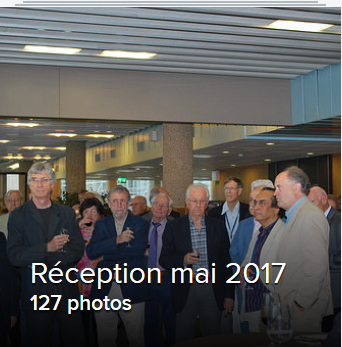
Category : Archives
The photos of the Spring 2017 reception of former officials are online! Thank you to the photograph, our colleague Jacques Rodriguez.

Category : Archives
At the beginning of the meeting, François Kientzler, Executive Secretary of the ILO Former Officials Section, thanked Guy Ryder, Director General, for his invitation, and congratulated him on his re-election for a second term as head of the International Labour Office (a letter of congratulation had already been sent to the DG by the Bureau of the Section in November 2016). Mentioning the fact that retired staff are invited to a reception twice a year, he emphasized that these events and the DG’s personal presence at them are much appreciated by those taking part.
The Executive Secretary introduced the members of the Bureau of the Section (with the sad exception of one member who passed away in 2016, Clément Roche): namely himself, François Kientzler, Executive Secretary; Ivan Elsmark, Assistant Executive Secretary; Abdoulaye Diallo, Assistant Executive Secretary; Venkataraman Narasimhan, Treasurer; Bert Essenberg, Assistant Treasurer; Kitty Hooton, Liz Sommaro, Cherry Thompson-Senior and Jean-François Santarelli.
In a brief presentation, the Executive Secretary recalled the objectives and activities of the ILO Former Officials Section. Established in 1982, it had once numbered a former Director General, Francis Blanchard, among its members. The Section encompasses every retired staff member, using a personal approach to address specific challenges and issues, as well as the ILO retiree community as a whole through more collective actions and events. Its involvement in the Office’s pre-retirement seminar is thus invaluable given the stress that leaving the world of work can often cause, sometimes with a profound impact especially on family and personal life. The seminar enables future pensioners to obtain individual advice.
Most of the Section’s activities are aimed at retired staff members. Issues around health protection and insurance, pensions and taxation are its central concerns. Coordination is ongoing not only with the Staff Union Committee but also with other retiree associations such as those of the UN and WHO. Officers of the Section respond to requests and personal cases on the basis of their specialisms, with annual information meetings on these various issues being held in Geneva. Ivan Elsmark gave a presentation on the Section’s publication, Message, the very strong link with ILO retirees across the globe. The contents range from substantive articles on all these issues to more historically oriented pieces written by former officials, as well as practical advice on prevention topics and everyday life. Lastly, the Executive Secretary referred to the Section’s new website (http://anciens-bit-ilo.org/en/home/), which offers an alternative means of communication with retired staff members. The site includes relevant information on the activities of the Section and current issues (social protection and pensions in particular) and features a selection of photos of events like receptions and information meetings. It also provides direct links to a number of other useful sites, such as those of the SHIF and the Pension Fund, as well as a PDF copy of every issue of Message published to date.
Following the presentation of the aims and activities of the Section, the Director General addressed the various points raised. Concerning participation in receptions, he noted that this reflects retired staff’s interest in the future of the ILO in the context of profound changes in our economies and societies. It also shows their loyalty and attachment to the Organization, which he welcomed. Moreover, it was always a pleasure for him to share a glass with former colleagues. He commented on the activities of the Section, noting the role we play in being present at the time of retirement and our ongoing work with retirees. He expressed appreciation for our publication, Message, particularly the article in the latest issue (No. 61, March 2017) shown him by the editor, Ivan Elsmark, on the relationship between Germany and the ILO during the 20th century, which had seen some very dark periods.
The most crucial point of the meeting was the situation of the SHIF. Recalling that retired staff feel an attachment to the Fund, the Executive Secretary noted that social protection had been an important achievement both for working people and populations in general. He referred to the fact that health protection and health insurance schemes are coveted by commercial operators which see them as potential sources of the same kind of financial profit that many pension funds already offer. But the ILO is bound to defend the principles of insurance and solidarity in a social protection that covers the population as a whole. Although the SHIF has had some difficulties in recent years in terms of service delivery and governance, improvements have been made. Doubts had arisen among many Fund members. He welcomed the recent integration of prevention aspects into SHIF policy, especially with regard to cancer detection and vaccinations, and recalled the difficulties in controlling expenditure related to hospital costs in Geneva.
After discussing retired staff’s concerns and hopes for the future of the SHIF, the Director General indicated that his perception was much the same as that expressed by the Executive Secretary of the Section. Good coverage and healthy finances are both essential. These are inescapable principles for the ILO’s health protection scheme. However, there are strong constraints, he said, such as his responsibility for sound financial management of the Fund and ensuring a high level of efficiency and effectiveness. Although there will be no growth in the ILO’s budget for the next biennium (2018-19), the DG will propose an increase in resources to the GB to strengthen the SHIF secretariat. The efficiency and effectiveness of the SHIF must be improved, and it was his responsibility to ensure its management is transparent and free of cost overruns or fraud. Thus, as also stressed by the Executive Secretary of the Section, he continued to pay close attention to improvements in cost control, in particular around hospital costs, which are very high in Geneva and require greater transparency. For Jean-François Santarelli, also current chair of the SHIF Management Committee, a joint approach with the UN and WHO health funds should lead to positive results in this area.
With particular regard to the implications of the implementation of certain recommendations related to the UN’s ASHI (After Service Health Insurance) programme, the DG felt they would have a very high impact on the ILO’s finances. Since this question was submitted to the GB in 2016, the Office is not yet in a position to act on it.
During the exchanges on this issue of health protection, Abdoulaye Diallo mentioned the difficulties experienced by retired colleagues in the regions. Unlike those residing close to headquarters in the Geneva area, they often find it difficult to make their voices heard by the heads of local and regional offices. Efforts should be made to accommodate former officials’ needs and follow up their medical claims. Referring to a recent specific situation, the Executive Secretary raised the issue of the Staff Welfare Officer’s role in respect of retired staff. It is not clear whether or not she is in a position to advise them if they ask her for help, given that her options for intervention are often limited to steering them towards the appropriate service. Finally, in connection with SHIF transparency, Liz Sommaro recalled that misunderstandings could be avoided if the Fund published its annual financial reports within the stipulated deadlines (none published since the one for 2012). The DG took note of these points.
The ILO Centenary celebrations constituted the third item proposed for this meeting with the Director General. On behalf of the Bureau of the Section, the Executive Secretary began by presenting the DG with one of the medals produced and distributed to officials for the ILO’s 50th Anniversary in 1969. The DG warmly thanked the Section for this gesture, and raised the possibility of producing a medal for the Centenary. The Executive Secretary then put forward four suggestions that the Section had come up with so far for the commemoration, which do not preclude other proposals. They were (1) a special issue of Message on the Centenary, which could comprise either articles already published or new ones; (2) a conference on the theme of the ILO Centenary; (3) a lunch like those held on the occasions of the 90th and 95th anniversaries; and (4) an exhibition by the Art and Decoration Circle of the ILO on the theme of the Centenary. The Executive Secretary suggested that these events could be organized in coordination with those of the ILO.
Reacting positively to these proposals, the Director General mentioned the programmes planned to date in relation to the Centenary, in particular the “Global Dialogue on the Future of Work We Want” initiative, which is its central element. As of now, 150 countries have entered and engaged in this process and a Conference was being scheduled in Geneva on 6-7 April on this theme. In the DG’s view, in fact, we are witnessing profound changes in what we mean by work in the years to come with the development of the Internet, information technologies, robotics, etc., and the structural changes this entails for work organization and production as well as governance. What will the jobs and work of tomorrow be? This is the central thrust of the Centenary celebrations. A publication on the history of the ILO is also in the pipeline. This book would be targeted not only at an academic audience but also a wider public. The celebrations will involve national authorities as well as the tripartite constituents and sister organizations.
The DG welcomed the proposals made by the Former Officials Section and hoped there would be coordination to ensure that events do not overlap and that those planned by the Section can dovetail with those scheduled by the ILO. The possible participation of the Section in a Centenary coordinating body was raised.
The meeting concluded with the traditional photo of the DG with the members of the Bureau of the Section.
François Kientzler, Executive Secretary, ILO Former Officials Section, 31 March 2017
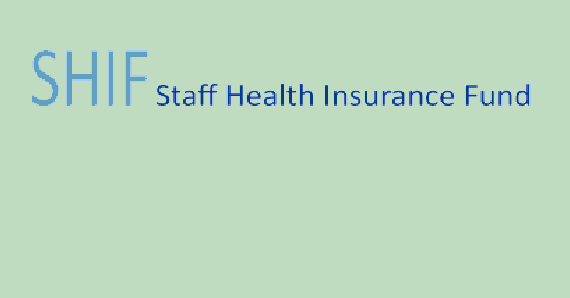
Category : Archives
To read the document, download the PDF
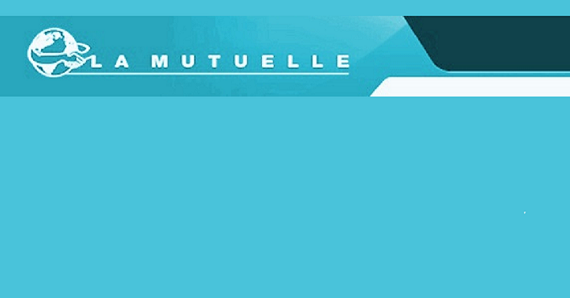
Category : Archives
Communication from the President of the Board of Directors of the MEC concerning the taxation of accounts of the MEC (October 2016).
To read the letter, download the PDF document
Circular of the “Ministère de l’économie et des finances” of the 14th of September 2016
To read the circular, download the PDF document
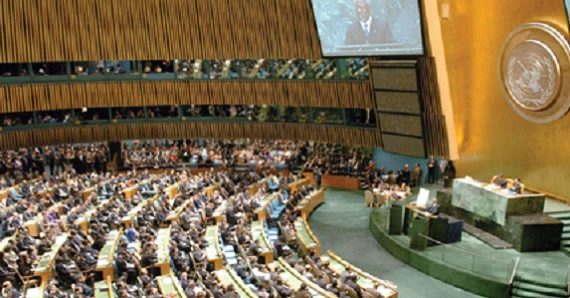
Category : Archives
Following a two-year campaign by staff unions over grave concerns regarding the governance of the Pension Fund and its performance in operations and investments, the UN General Assembly has at last taken action. Passing a resolution (No 71/265) at the end of 2016, the General Assembly has clearly reasserted the UN Secretary General’s primacy over the Fund, confirming the role of the Office of Internal Oversight Services and endorsing the use of existing internal capacities rather than consultants in the operations of the Fund. The resolution further calls on the Fund to improve performance, diversify investments, and minimise foreign exchange losses. It strongly rebuked the Fund administration for allowing key posts in the Investment Management Division to remain vacant (potentially a contributing factor in the underperformance of investments?) and for failing to pay new retirees on time.
The resolution is seen as a first step in addressing the problems besetting the Fund, particularly changes proposed by the CEO, which could have moved the Fund away from UN oversight to an environment potentially more prone to risk, corruption and exploitation by external management companies. Key posts – the heads of investment and risk management – had been vacant for over a year and no performance evaluation of the head of the Fund’s Investment Management Division, had been included in the most recent report on the Fund. Given concerns about performance of the Maryland State Pension Fund during the Chief Investment Officer’s tenure, the vacant key posts and the failure to meet the target of 3.5% annual average return (actual returns since 2014 have been below 2%) this was seen as an important issue.
The UN Pension Fund Board, citing the most recent actuarial report, confirmed in July 2016 that the Fund had a small surplus and would not need to dip into capital for the next 50 years providing the Fund can maintain a 3.5% annual average return – Watch this space!